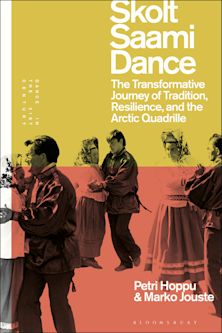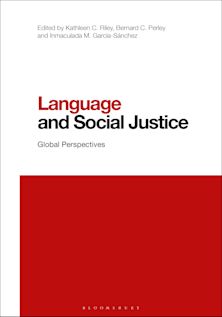Ecotourism Impacts on Indigenous Peoples
Ecotourism Impacts on Indigenous Peoples
This product is usually dispatched within 1 week
- Delivery and returns info
-
Free US delivery on orders $35 or over
Description
Ecotourism, defined as responsible travel to natural areas that conserves the environment and improves the well-being of local people, has become one of the fastest growing industries in the world. The impacts of ecotourism on people in virtually every part of the planet are particularly true for Indigenous people. Indigenous people are found in over half of the world’s countries and their cultures, customs, traditions, identities, and natural resource management systems are of great interest to scientists, tourists, and travelers. Many Indigenous peoples reside in conservation hotspots and places with high biological biodiversity. As shown in this book, ecotourism has both promises and pitfalls for Indigenous peoples, who seek to enhance their livelihoods while conserving the habitats in which they reside and the sacredness of their traditions. Drawing on cases from South America, North America, Africa, and Asia, Ecotourism Impacts on Indigenous Peoples examines the social, economic, political, and environmental impacts of ecotourism. A common plea of Indigenous people is that they have greater control over incoming ecotourists and receive more equitable social, economic, and cultural benefits from what they recognize as a highly complex industry with significant environmental, economic, and political effects.
Table of Contents
Acknowledgments
Chapter 1. Ecotourism, Indigenous Peoples, and Societal Impacts
Wayne A. Babchuk and Robert K. Hitchcock
Chapter 2. Sustainable Tourism: Marketing Indigenous Identity in the Plurinational State of Bolivia
F. Sonia Arellano-López
Chapter 3. Challenges of Ecotourism among the San of Botswana, Namibia, and Zimbabwe
Robert K. Hitchcock, Wayne A. Babchuk, and Melinda C. Kelly
Chapter 4. Ecotourism, Anthropology, and San Community Docents and Activists:
Some Interactions
Megan Biesele
Chapter 5. ‘Your Soul Will Remember’: Reconnecting with the Kalahari, Celebrating Traditional Knowledge, Sharing the Meat, and Becoming a Community on the ?Khomani San Lands Today
R. Fleming Puckett
Chapter 6. The Mayanization of the Ch’orti’: Indigenous Identity amid Tourism-based Development Initiatives in Copán, Honduras
Fredy Rodriguez-Mejia
Chapter 7. Aboriginal Alternative Tourism in Arnhem Land: Tourism as Cultural Learning
Sachiko Kubota
Chapter 8. How Does Cultural Tourism in a National Monument Affect its Affiliated Pueblo Tribes?
Vidal Gonzales, Robert K. Hitchcock and Melinda C. Kelly
Chapter 9. Covid-19 and the Limits of Community-Based Ecotourism as a Sustainable Livelihood Diversification Strategy: The Case of the Indigenous Karo of Batu Katak, North Sumatra, Indonesia
Roderick T.J. Buiskool and Stasja Koot
Chapter 10. Change among the Wannilaeto of Sri Lanka: Land, Livelihoods, and Ecotourism Impacts
Wiveca Stegeborn
About the Contributors
Product details
| Published | Nov 30 2024 |
|---|---|
| Format | Hardback |
| Edition | 1st |
| Extent | 262 |
| ISBN | 9781793643841 |
| Imprint | Lexington Books |
| Illustrations | 50 BW Illustrations, 10 Tables |
| Dimensions | 9 x 6 inches |
| Publisher | Bloomsbury Publishing |
Reviews

ONLINE RESOURCES
Bloomsbury Collections
This book is available on Bloomsbury Collections where your library has access.


































